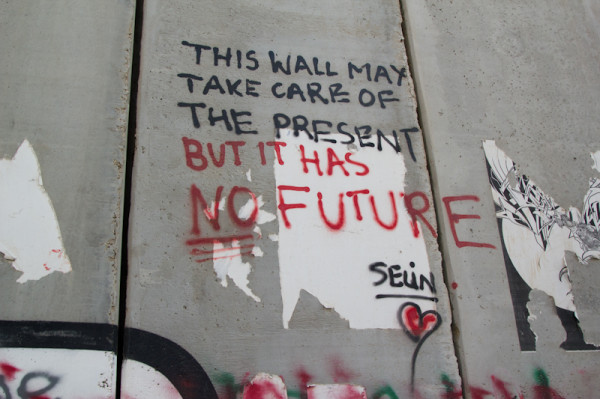Nablus, 2014/01/03 – To strike is a cry of desperation to re-establish ones rights. To strike is to show the society the valuable work the striking workforce performs. For 31 days the strike in all 19 UNRWA refugee camps on the West Bank has been carried out. For 31 days pupils have not received any education, sick and injured people have not been able to get any healthcare or medicine and the waste mountains are growing. One can think that it is worth offering the pupils education or living among garbage if you know that it will result in something good for the community. But how efficient is the strike if it does not get any attention? A strike that is only affecting the ones that already are living under terrible circumstances and without any rights? The strike gets very little, if any, attention. There is no information on UNRWA’s homepage, and neither the local nor national media is reporting it. The Arab workers union for UNRWA employees do not feel that they receive any or very little attention form the Palestinian Authority and UNRWA.
Some of the Arab Staff Union members have started a hunger strike. Right now, in a tent in central Nablus, there are 7 men on hunger strike for 4 days. In the tent I meet Mohammed who with great engagement gave information about the situation. For many years the union have drawn attention to the fact that UNRWA is consistently violating the right of the Arab workers in the camp. But the droplet that caused the beaker to overflow, according to Mohammed, was UNRWA’s decision to shut down a ”Job Creating Program” due to budget cuts, leaving 55 workers, family providers, without a job. This program has been running for 13 years and Mohammed is one of those who have been working with it from the start.
When UNRWA announced the decision to shut down the program the union threatened to go on a strike if their demands to keep the program were not meet. Over the course of two months negotiations were held between UNRWA and the union, but no solutions have been in sight. After the strike was followed through, UNRWA has done nothing to try and stop it, according to Mohammed. There are now 28 people in different cities all over the West Bank who are on hunger strike. The ones who have been on hunger strike for the longest time are now on their 8th day.
The program, which Mohammed and his colleagues were working with, aimed to create job opportunities for unemployed refugees. One example of the work that has been carried out by the participants in this program is the establishment of a big park in central Nablus. Many cities and villages all over West Bank have benefited from different public services provided by this program. According to Mohammed 82 000 job opportunities have been created during the 13 years this program has been operating. The program has focused on four main areas; Agriculture, Women empowerment and livelihood, Infrastructure and Protection/security. The decision to stop this program means that all these services will now be stopped. The remaining part of the program is about 20-30% of what it once was, but the plan is to stop even this remaining part within 6 months. But it is not only these 55 workers who are on a strike. All public Arab employees of UNRWA are on strike, each workforce has different demands.
A great reason for the UNRWA budget cuts is the urgent situation in the Syrian refugee camps that fall under the responsibility of UNRWA. And the cold and difficult winter is making the situation yet more urgent. UNRWA is relocating their resources in order to help the people in urgent need of assistance. Mohammed argues that it should not be his children who will have to pay for the Palestinian refugees in Syria. “My children should not have to starve because we need to send the help to Syria instead,” Mohammed says. The help to the Palestinian refugees in Syria will have to come from another budget.
Many meetings have been established between the Palestinian authorities and the Arab Workers Union to try to put pressure on UNRWA, but according to Mohammed the meetings with the Palestinian Authorities have not led anywhere. And UNRWA does not open up for negotiations. The strike is open-ended, it will continue until an agreement has been reached. According to Mohammed even the Palestinians outside the refugee camps will soon be affected by the strike, due to the many services from the program that Mohammed was working on that have been stopped in the Palestinian communities. But the hopes that the strike will affect the Palestinian society in such severe manner that Palestinians outside the camps are crying for an end of the strike, has a very long-term perspective. Many people I have been talking to in Ramallah and Nablus do not even know that the strike is taking place right now. Until an agreement has been reached the hunger strike will continue, the pupils do not get any education, medicine and healthcare is very limited and the waste mountains continue to grow.
By Johanna Bond Political Science student at Stockholm University whom during December 2013 and January 2014 is conducting a study about developmental aid and social capital among Palestinian refugees in New Askar refugee camp
Contact: johanna.k.bond@gmail.com










